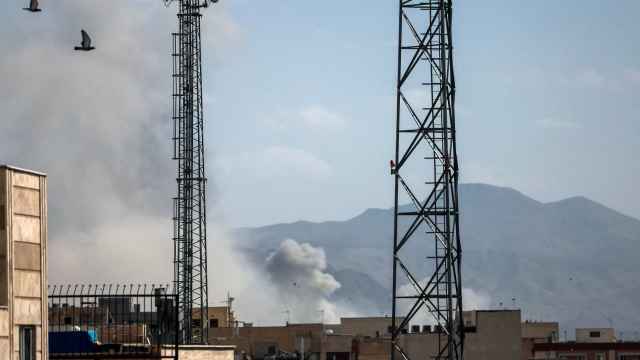Global powers and Iran are close to a preliminary deal to rein in Tehran's nuclear program and should not pass up a "very good chance" to clinch it, Russian Foreign Minister Sergei Lavrov said in remarks broadcast Saturday.
His upbeat comments in a television interview came a day after a senior U.S. official said it was possible a deal could be reached when negotiators meet in Geneva from Nov. 20.
Six nations negotiating with Iran hope the talks can produce an agreement that would be the first step towards a comprehensive deal to end a decade-long standoff with Tehran and provide assurances it will not build nuclear weapons.
"Our common impression is that there is a very good chance that must not be passed up," Lavrov said of a recent discussion with European Union foreign policy chief Catherine Ashton, when asked whether the Geneva talks could be successful.
"The steps that must be taken to defuse the situation and create conditions for a final resolution of the Iranian nuclear problem are clear to both the six nations and Iran," he said in the interview with Moscow-based TV Tsentr.
"It is a matter of putting this on paper correctly, accurately and in a mutually respectful way."
Ashton represents the six global powers seeking to curb Iran's nuclear program — the U.S., Russia, China, Britain, France and Germany — in negotiations with Tehran.
Talks from Nov. 7 to 9 produced no deal but "confirmed that for the first time in many years both the six nations and Tehran are ready not just to present positions that in most cases do not intersect, but to find points of intersection," Lavrov said.
"These points have been determined, and now there are no fundamental disagreements on which issues need to be resolved in practice," he said, according to a Foreign Ministry transcript of the interview.
He gave no details. Iran wants relief from U.S., EU and UN sanctions imposed for violating UN resolutions demanding it halt uranium enrichment and other sensitive nuclear activities that could be used to make weapons.
Iran denies it wants to develop atomic weapons capability and insists its nuclear program is dedicated exclusively to the peaceful generation of electricity and other civilian uses.
Russia, which built Iran's first nuclear power plant and has much warmer ties with Tehran than the U.S. does, backs Iran's desire for recognition of its right to enrich uranium and opposes any additional sanctions.
A Message from The Moscow Times:
Dear readers,
We are facing unprecedented challenges. Russia's Prosecutor General's Office has designated The Moscow Times as an "undesirable" organization, criminalizing our work and putting our staff at risk of prosecution. This follows our earlier unjust labeling as a "foreign agent."
These actions are direct attempts to silence independent journalism in Russia. The authorities claim our work "discredits the decisions of the Russian leadership." We see things differently: we strive to provide accurate, unbiased reporting on Russia.
We, the journalists of The Moscow Times, refuse to be silenced. But to continue our work, we need your help.
Your support, no matter how small, makes a world of difference. If you can, please support us monthly starting from just $2. It's quick to set up, and every contribution makes a significant impact.
By supporting The Moscow Times, you're defending open, independent journalism in the face of repression. Thank you for standing with us.
Remind me later.





